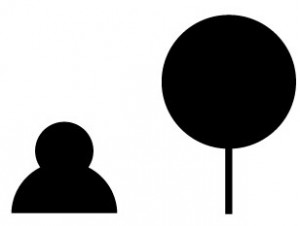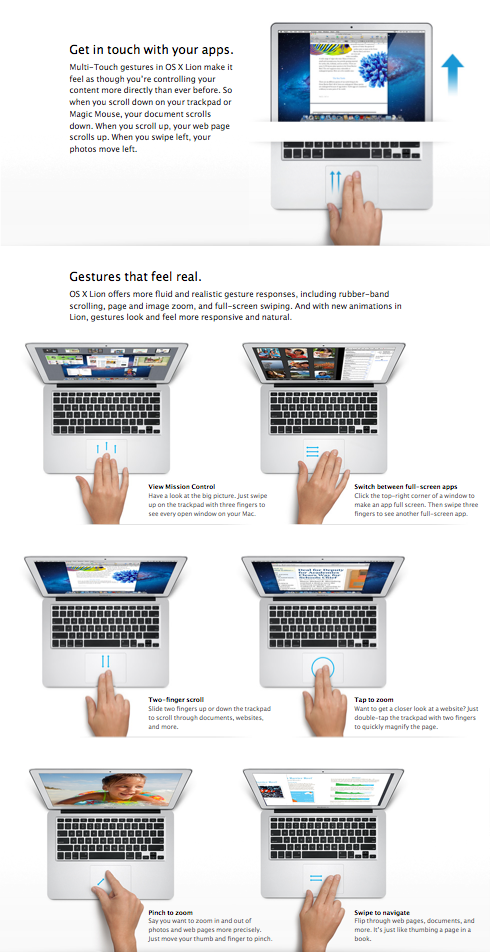You Are Not a Gadget – Jaron Lanier
This chapter made me reflect about my own thoughts on how human behavior is shaped by technology. I think technology causes traditional social skills to suffer. I’ve noticed, especially in San Francisco, that people are attached to their gadgets. If you go out to a nice restaurant, for instance, you see people interacting more with their gadgets than their company. I had gotten so used to seeing people’s devices as an extension of their bodies that it took my traveling and leaving the country to realize what I had gotten used to. I don’t think it’s a positive change, although I find myself guilty of the same behavior.
Sometimes technology, although convenient, is not the best way to communicate. While working, I had coworkers that would send me 20+ unclear and frustrating emails to the point where I had to ask them if they were available to walk 10 feet to come talk to me and explain, in person, what they were asking for. Most of the time it took less than a 5 minute conversation to clarify their emails.
Or think of the times when you’re chatting with your friends or significant other and they ask what’s wrong, when in fact, nothing was wrong. How could they even determine emotion based on text?
Technology is not all bad, but I can see what Lanier means when he talks about the future of technology. It has brought people together from all over the world. I used to have a penpal from Thailand in 1993. I would send him a letter, and wait about a month for a response. Now that we’re Facebook friends, we can talk to each other instantly.
Technology has its positives and negatives. I’m hoping that the future pushes technology in a more positive direction.
Things That Make Us Smart – Donald A. Norman
Representation is very powerful, I agree. It simplifies things for the human brain so that it can quickly and easily comprehend the information presented. Reading this chapter made me think about iconography and data visualizations. Iconography is a visual representation at its simplest state. Below are some simple representations I created in 30 seconds. I tested these on my 5 year old, who was able to understand my representations. A person can be represented by a circle, and possibly a semicircle for the body. A tree can be represented by a circle and vertical line through the middle. It’s amazing how these simple shapes can create forms that we can see and understand.

Data visualization is a little more complex, but if represented well, it can be very successful. There are a lot of data visualizations out there that just complicate the data set. And I know, dealing with large data sets is very difficult to organize and comprehend, especially if the designer doesn’t understand the data him or herself. But once it is done successfully, it makes the data so much easier to understand. And sometimes when looking at data, you can start to see patterns that weren’t prevalent when organized in a different manner.
Natural User Interfaces Are Not Natural – Donald A. Norman
Again, I agree with Norman. I recently purchased a Macbook which allowed me to download and install OS X Lion, complete with “Gestures that feel real.” Apple has added so many gestures, that I’ve simply lost track. Maybe I’m getting old, and I can’t learn new gestures as quickly as I used to, but I feel as if these gestures are so unnatural, especially with the use of multiple fingers. What if my fingers are abnormally fat? If I use two fingers for a gesture, will it not work because it thinks I’m using three fingers? Also, the horizontal gestures cause your wrists to swipe at a very odd and unnatural angle. I also find it difficult to remember which gestures are supposed to do what. I became so frustrated with these gestures that I had to buy a mouse, a Logitech mouse, because even Apple’s overpriced Magic Mouse is gestural. I know a lot of time and money was spent on the research and development of these gestural tools, but I wonder what percentage of their users actually use and like all of these gestures.

http://www.apple.com/macosx/whats-new/gestures.html
The Web Means the End of Forgetting – Jeffrey Rosen
This article was not surprising at all. I think by now, most people know that whatever you put on the web, stays on the web. Yet people still make unwise decisions when putting drunken photos of themselves online when they know they’re in the active process of looking for a job. I agree that amongst their friends, drunken photos are hilarious. But amongst potential employers, it’s not always the case. Google+ sought to alleviate that issue with their implementation of circles. You can post whatever you want to your friends, and post entirely different things to your family. It’s a rather clever way of handling that issue, but still not a panacea for the whole cloud issue.
I recently hired a babysitter, and was surprised to find so much information about her online. I couldn’t find her Facebook profile, but I found her MySpace page which was even better because it had blog posts and information from as early as 2005, so I could really see her true character throughout the years. I know that she went to the Disneyworld in June 2005. I could tell from her posts that she has some body image issues. And I even know when her grandmother passed away. She probably forgot about her MySpace account which was why all this information was so easily accessible. That’s why I google myself and my family members every few months, to see what information people can find about us. Once I found my mom’s social security number through her employer. I immediately told her and she was able to contact her employer to take it down. I think it’s a good practice for people to adopt. I don’t see this issue getting any better any time soon. So in the meantime, “Think B4 U Post!”
Great Wall of Facebook: The Social Network’s Plan to Dominate the Internet – and Keep Google Out – Fred Vogelstein
Google and Facebook are scary. Don’t you think it’s creepy when you google, “cute purses” and all these ads for cute purses show up on Facebook or sites that you think are totally unrelated? I also recently noticed that my Facebook friends show up on Pandora. I don’t recall linking my Pandora account to Facebook, so it was definitely done without my permission. It’s very disturbing.






